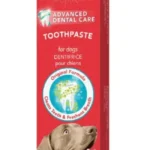Research shows most homeowners share their food with their pets. Most people and dogs love chicken, and rotisserie chicken is a common food option for most families. Unfortunately, dogs often eat the same food almost every day all their lives. So, they get excited around new foods, including rotisserie chicken, but is rotisserie chicken good for dogs?
Rotisserie Chicken: What is It?
A rotisserie chicken is used to refer to a whole chicken cooked in a skewer. The chicken is first marinated, then strategically placed near a heat source, and it cooks as it spins around for even cooking.
Is Rotisserie Chicken Good For Dogs?
Yes, it is. However, you should only feed your canine rotisserie chicken occasionally. Dogs love chicken, and chicken is a common ingredient in most dog foods. However, feeding them rotisserie chicken only or oftenly is not a healthy option for them.
Due to the high protein in rotisserie chicken, it offers numerous health benefits for them. Unfortunately, rotisserie chicken has extra seasonings and additional flavors, which could upset your dog’s stomach. Therefore, rotisserie chicken for dogs should be more of an occasional treat.
Advantages of Feeding Rotisserie Chicken to Dogs
Surprisingly, feeding rotisserie chicken to a dog has two main benefits. First, the chicken is high in protein, which dogs need. Protein helps dogs maintain strong muscles. It also helps keep their coat healthy and shiny.
Note: Even though protein may be helpful for dogs, they do not need very high levels of protein as humans do.
Second, chickens contain high iron, which keeps their blood healthy. The high iron levels also help prevent anemia. Therefore, feeding rotisserie chicken to your dog is a way to supply them with additional nutrients while giving them a new flavor.
What Can I Feed My Dog Other Than Rotisserie Chicken?
If your dog does not love chicken, you might wonder what human food you can serve them. Well, you can serve them beef or ground turkey. These are great alternatives because they are lean and have fewer calories than chicken.
Alternatively, you can feed your dog some sardines or salmon, which are rich in omega-3. They will give your dog healthy skin and a shiny coat. In this case, always pay close attention to the fish and ensure it is boneless. It is also better to have the fish packed in water rather than in oil.
How Much Rotisserie Chicken Should I Feed My Dog?
You can give your dog up to 100 grams of rotisserie chicken, which will be plenty enough for them. There are several ways you can feed rotisserie chicken to your dog. Besides shredding it and adding it to its meal, you can create broth using the chicken and give it to your dog. This is recommended, especially for an ailing dog.
How to Make Rotisserie Chicken to Feed Your Dog
While you can always buy your dog rotisserie chicken, it is best if you prepare it because you can limit the seasoning and flavors. Most heavy flavors used in commercial food joints have a lot of salt and could be upsetting to a dog’s gut.
So, when preparing a rotisserie chicken for your dog, go very light with flavors. It is best only to use some light herbs and a bit of lemon. Once the chicken is ready, before feeding, use forks to remove the skin and bones in the chicken.
Is It Harmful When My Dog Eats Chicken Skin?
No, it is not. A dog can eat the skin and be fine, but you should shred it and leave it in the kitchen. While it is not harmful, the skin has a lot of fat. A 100g serving of chicken skin contains 40% fat, 20 g, and 450 calories.
The high-fat and low nutritional content shows it is not an excellent option for your dog. Additionally, there is a higher chance that the rotisserie chicken skin will be burnt. Thus, it will be harder to digest. If you are struggling with an underweight dog, here are some tips to help it gain weight healthily.
Are Rotisserie Chicken Bones Good For Dogs?
It depends. You have nothing to worry about if your dog is used to cracking and eating bones. However, if your dog does not eat bones, you should remove them before feeding the rotisserie chicken to your dog. Bones can be a potential choking hazard.
Also, when roasting a chicken, the bones become brittle and harder instead of getting softer as they would with boiling. Therefore, when your canine breaks the bone, it might break with sharp ends, which may be harmful to the mouth and throat and dangerous to swallow. So, to be safer, you can take them out.
Are there any Health Risks with Rotisserie Chicken for Dogs?
Yes, there are some health issues. First, chicken meat might be tremendous and lean, but chicken skin contains fat. So, it could result in weight gain, especially if fed frequently. To avoid this, it is essential to remove the skin.
The second concern is the spices used in rotisserie chicken. Most prepared rotisserie chickens are meant for human consumption. Therefore, they contain a lot of seasonings, spices, and sauces which could be bad for a dog. Some of these seasonings contain brine, which can be upsetting to them. So, always go for a plain rotisserie chicken.
Which Is Better for Dogs: Rotisserie, Boiled Or Roast Chicken?
To compare the three, here is a table of how the nutrition data between these three compare
| Serving per 100g | Rotisserie | Boiled | Roast |
| Calories | 164 | 165 | 165 |
| Protein | 27 | 26 | 25 |
| Fat | 6.4 | 3 | 6.5 |
| Sodium | 0.345 | 0.064 | 0.161 |
It is interesting how the main nutrition components are somewhat similar for the differently cooked chicken. You can see the calories are almost identical, and the main difference is in the fat and sodium content.
You can see the rotisserie chicken has almost twice as much sodium as a roasted chicken. This is because of the brine injected into a rotisserie chicken while it cooks. It also appears a roasted chicken has more than twice the sodium in a boiled chicken. In regard to fat, both rotisserie and roasted chicken have the same level, but the boiled chicken has half fat content as the other two.
Therefore, having analyzed the nutrition of each of the three categories of cooked chicken offered, boiled chicken would be the best. Nevertheless, once in a while, you can always treat your dog to rotisserie chicken.
Consult Your Vet
You want the best for your dog, but when it comes to diet and nutrition, your vet knows best. Since they understand your dog, they can offer personalized diet advice. Depending on your dog’s nutritional needs, they can also shed light on the best feeding schedule and portion sizes. Every dog is unique and might need some dietary adjustments depending on their breed, age, health, and weight.
Take Away
Rotisserie chicken for dogs is a good way to supplement their diet, provided you get rid of the skin and bones. Remember, your dog should not solely eat rotisserie chicken and it should not be a frequent addition to their meal. You can try mixing the chicken with some rice, vegetables, and greens. Avoid adding spice and seasoning to the chicken.
FAQ
Is it okay to feed my dog store-bought rotisserie chicken?
If the store-bought rotisserie chicken is plain, then it is okay. However, it is best to prepare a home-cooked rotisserie chicken because you have control of the ingredients and the cooking process. We understand that sometimes we are too busy, so yes, a store-bought chicken, provided it is fresh and not seasoned, will be fine.
Is rotisserie chicken good for dogs with diarrhea?
No, it is not. Since most rotisserie chicken have spices which could worsen diarrhea. So, instead of feeding rotisserie chicken, first observe and provide it with enough water. If the diarrhea lasts longer than 24 hours, it could be time to schedule a visit to your vet.
What dogs should not eat rotisserie chicken?
It is not advisable to feed rotisserie chicken to dogs with digestive issues or pancreatitis. Since chicken meat is a little greasy, it could cause further complications.
Why did my dog have diarrhea after I fed it rotisserie chicken?
Some dog’s diarrhea after eating a rotisserie chicken because of sensitivity to seasoning, onions, spices, and sauces used in the chicken.
Can all dog breeds eat rotisserie chicken?
No. Rotisserie chicken is recommended for larger breeds since smaller breeds might find it hard to digest the chicken after ingestion.
Can I feed my dog rotisserie chicken every day?
No, you should not feed your dog rotisserie chicken every day. It should be a once-in-a-while treat without the skin.
Is rotisserie chicken too salty for dogs?
Yes, it is, which is why preparing it yourself is better than buying pre-made rotisserie chicken. Always ensure your dog drinks enough water after eating the chicken.
Can dogs eat rotisserie chicken skin?
Yes, they can, but it is better if they do not because it is low in nutrients and very high in fats.
Is rotisserie chicken safe?
Yes, it is safe, but safer when prepared at home because you limit the ingredients you put in it.
What happens if my dog eats rotisserie chicken bones?
If your dog is accustomed to eaten bones, then nothing would happen when it eats rotisserie chicken bones. But if your dog doesn’t eat bones, rotisserie chicken bones could injure it because they are hard.
Does rotisserie chicken have bones?
Yes, it does because it is a whole chicken
Are boiled chicken bones safe for dogs?
Compared to rotisserie chicken bones, boiled chicken bones are safer because they are softer after boiling, unlike rotisserie bones which harden as it roasts.
Can rotisserie chicken cause pancreatitis in dogs?
If fed frequently as a main meal, yes, it can.





